
Pheasants and partridges just love stubble. They can rake about easily, scoffing the gleanings, pecking at odd weeds and even chasing after big, succulent insects like daddy longlegs.
With the cut stems offering cover up to just about head height, they feel much safer than when out on a fully open field. From the keeper’s point of view, this can bring a nightmare time of straying and endless work dogging them back. But, on the other hand, stubble can help you to hold birds that would otherwise be looking for somewhere more comfortable, over the boundary.
Given the opportunity to develop naturally, stubble can be a real wildlife haven, offering a valuable post-harvest habitat to a wide range of species. The flush of weeds that follows along after the combine has gone offers a pollen and nectar resource for late-summer insects, particularly hoverflies and some of the later butterflies. Then, as their seeds set, there is a selection of food for farmland birds such as linnets, yellowhammers, goldfinches and corn buntings.
To get the best from stubbles it is therefore clear that applying weedkillers is a bad plan. Twenty years or so ago, it became routine for stubble to be sprayed off with a broad spectrum herbicide (usually glyphosate) in late autumn. The main aim here is to kill off what are known as volunteers – the newly growing crop plants from seed spilled at harvest – to avoid risk of carrying over plant diseases.
I have a feeling that these days this is less popular and I assume that nutrient conservation may have something to do with it. A green cover locks up fertility, resulting in less nitrate and other fertiliser leaching into groundwater, and farmers are under increasing pressure over this.
Denne historien er fra July 08, 2020-utgaven av Shooting Times & Country.
Start din 7-dagers gratis prøveperiode på Magzter GOLD for å få tilgang til tusenvis av utvalgte premiumhistorier og 9000+ magasiner og aviser.
Allerede abonnent ? Logg på
Denne historien er fra July 08, 2020-utgaven av Shooting Times & Country.
Start din 7-dagers gratis prøveperiode på Magzter GOLD for å få tilgang til tusenvis av utvalgte premiumhistorier og 9000+ magasiner og aviser.
Allerede abonnent? Logg på
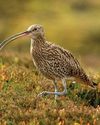
United we stand
Following United Utilities' decision to end grouse shooting on its land, Lindsay Waddell asks what will happen if we ignore our vital moors

Serious matters
An old gamebook prompts a contemplation on punt-gunning
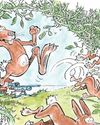
They're not always as easy as they seem
While coneys of the furry variety don't pose a problem for Blue Zulu, he's left frustrated once again by bolting bunnies of the clay sort
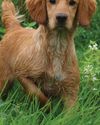
Debutant gundogs
There's lots to think about when it comes to making the decision about when to introduce your dog to shooting

When the going gets rough
Al Gabriel returns to the West London Shooting School to brush up on his rough shooting technique

The Field Guide To British Deer - BDS 60th Anniversary Edition
In this excerpt from the 60th anniversary edition of the BDS's Field Guide To British Deer, Charles Smith-Jones considers the noise they make
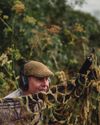
A step too far?
Simon Garnham wonders whether a new dog, a new gun and two different fields in need of protection might have been asking too much for one afternoon's work

Two bucks before breakfast
A journey from old South London to rural Hertfordshire to stalk muntjac suggests that the two aren't as far detached as they might seem
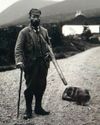
Stalking Diary
Stalkers can be a sentimental bunch, and they often carry a huge attachment to their hill

Gamekeeper
Alan Edwards believes unique, private experiences can help keepers become more competent and passionate custodians of the countryside